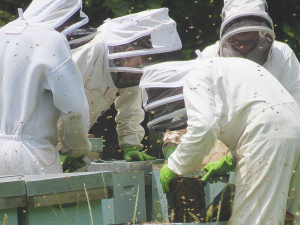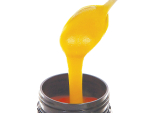In a reversal of its previous statements, the Manuka Charitable Trust (MCT) has announced that it will not be appealing the New Zealand Intellectual Property Office's (IPONZ) ruling that New Zealand has no exclusive claims to the term manuka honey.
Australian Manuka Honey Association (AMHA) chair Dr Ben McKee has welcomed the 'renewed sensibility' of the NZ sector and expressed hope for collaboration in the future.
"[Australian manuka] has little appetite to expend more money fighting legal battles for little gain for either part," he told Rural News. "There is more to be gained in working together, alongside one another, than the current path of division between the only two native manuka honey producers in the world."
Nevertheless, MCT Chair Pita Tapene says it and the wider industry remained 'fully committed' to protecting the term Mānuka Honey.
"We've decided not to appeal on the technicalities around this decision, but this is far from the end of our determination to achieve protection in Aotearoa and around the world," he says.
"We have an irrefutable role as kaitiaki (guardians) to protect our reo Maori, the mana, mauri, and value of our taonga species, including Mānuka on behalf of all New Zealanders and consumers who demand and value authenticity. We are considering our next steps and will provide further updates."
These statements, in conjunction with previous legal challenges, mean that McKee and others remain cautious.
"We in Australia are not the enemy and pose little threat to the market power and size of the NZ Manuka industry," McKee adds. "We are all beekeepers; we are all lovers of bees and honey."
Tom Walters, chief executive of the Maori Research Institute and former united Manuka Factor Honey Association (UMFHA) member has been critical of the New Zealand manuka industry's claims and has accused it of co-opting Maori heritage for commercial gain.
"If the New Zealand industry remains adamant that Maori are being deprived of their IP rights and royalties, then I suggest they collaborate with proactive Maori in the industry and fund the project themselves," he says. "This case was never about Maori; it has been about a selective number of New Zealanders claiming Manuka to their corporate greed."
In its statement, MCT says there was a lack of recognition of indigenous rights in intellectual property regimes in New Zealand and internationally, which was previously attributed to the results of the IPONZ ruling on manuka honey.
Under the recent FTA with the EU, manuka honey is given protected status under its provisions of "the promotion or promotion of the rights, interests, duties and responsibilities of Maori".



















